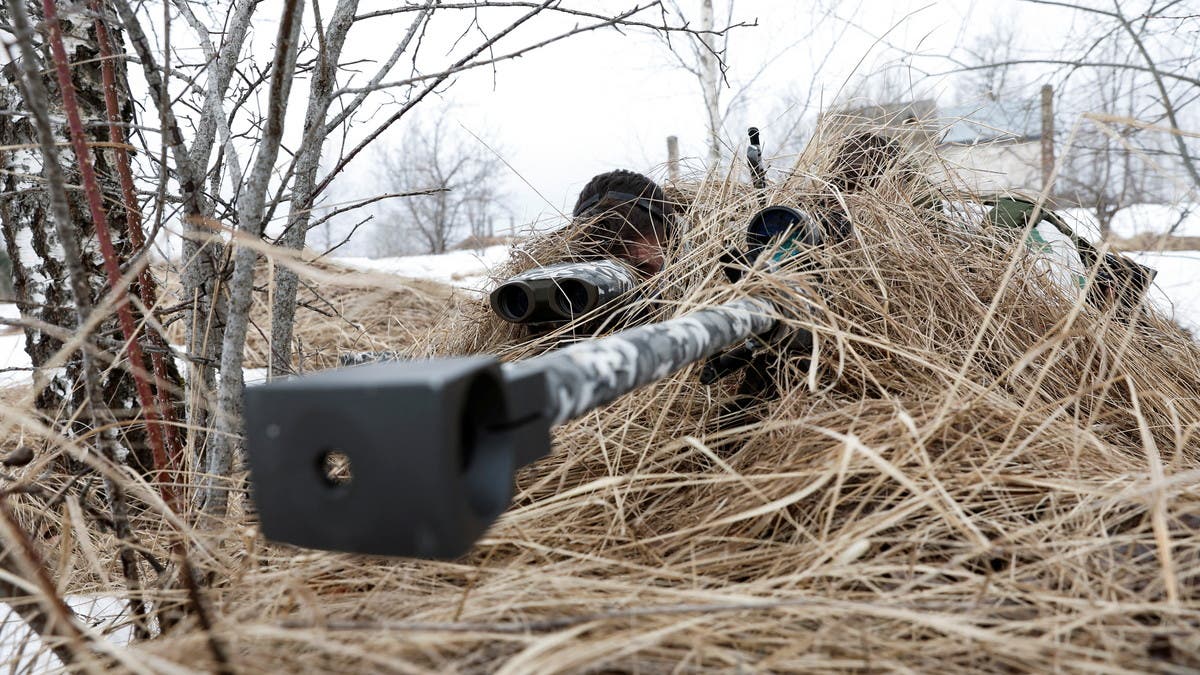When Vladimir Putin congratulated Emmanuel Macron on his re-election as France’s president and wished him “success in your activities,” the Russian leader probably was being more polite than sincere.
As he embarks on a second term, with the intention of keeping France at the forefront of international efforts to force Putin to change course in Ukraine, Macron has given a green light for the delivery of modern artillery pieces to Kyiv that could help stem Russia’s new offensive in the east of the country.
For the latest headlines, follow our Google News channel online or via the app.
Firing six rounds per minute over 40 kilometers (25 miles) or more, the truck-mounted Caesar cannons will allow Ukrainian crews to pound Russian troops from afar, then move and pound them again.
Used to great effect against Islamic State forces in Iraq and in other conflicts, they represent a step up in France’s assistance to President Volodymyr Zelenskyy’s government.
In another remarkable move, Macron is talking openly about the guns, lifting a veil of secrecy he’d thrown over French military aid. The delivery and the publicity together signal a tougher line from Macron in his dealings with Putin — talking less and engaging more in brinksmanship with the Kremlin.
“Initially, we were a bit shy to show what was being provided,” said retired Gen. Dominique Trinquand, a former head of France’s military mission at the United Nations. But “we have been escalating week after week, testing the reaction.”
Macron was in the closing stages of his presidential re-election campaign when he name-dropped the Caesar cannons in an April 21 interview with the newspaper Ouest-France. He also mentioned Milan anti-tank missiles, although those supplies had already been reported. Macron didn’t give numbers.
Citing unidentified French sources, Ouest-France said 12 Caesars will be drawn from the French arsenal and that 40 Ukrainian artillery soldiers were arriving for training at a military base in the south of France.
Macron said his “red line” remains not entering into direct conflict with Russia, but within that limit, “we must provide maximum help to the Ukrainians.”
“We are delivering consequential equipment,” he said. “We need to continue down this path.”
His armed forces minister tweeted that thousands of shells would also be part of the delivery. Sunil Nair, an analyst who specializes in artillery systems for the defense publication Janes, said the cannons could be used independently of each other or together as a battery.
“It does give you firepower, no doubt about it,” he said. “It’s a question of how they use it and where they use it.”
Before and after Russia’s February 24 invasion, Macron had kept an open line with Putin. But the horrors discovered by Ukrainian troops as they retook control of villages near Kyiv once Russian soldiers withdrew gave Macron pause. His office said last week that the two leaders haven’t spoken since March 29.
Macron says that, eventually, he’ll need to pick up the phone again — because not talking to Putin will allow the leaders of China, India and Turkey to take the lead in trying to negotiate the peace, whenever that time comes.
“We’ll have to prepare a cease-fire at some stage, and Europe will have to be around the table,” Macron said last week.
In the meantime, French weapons will do some of the talking — in hopes of adding to the pressure on Putin.
“The best way to have successful talks is to have successful Ukrainians throwing back the Russian invasion,” said François Heisbourg, a French analyst on defense and security questions at the International Institute for Strategic Studies.
The Caesars will allow their crews to go hunting for Russian artillery pieces being used in eastern Ukraine that are indiscriminately pummeling civilian targets.
“The Americans and the Poles and the Slovaks and the Belgians and the French and the Canadians are all sending heavy artillery to the Ukrainians,” Heisbourg said.
“That’s a really, really big improvement to the situation of Ukraine in the new phase of the war.”
Read more:
US hosts Ukraine talks in Germany as war enters critical phase
Ukraine urges UN to guarantee safe corridor from Mariupol steel plant
Russia’s expulsion of 40 German diplomats not ‘justified’: Berlin

 World3 years ago
World3 years ago
 World3 years ago
World3 years ago
 Business11 months ago
Business11 months ago
 Entertainment7 years ago
Entertainment7 years ago
 World7 years ago
World7 years ago
 Entertainment7 years ago
Entertainment7 years ago






